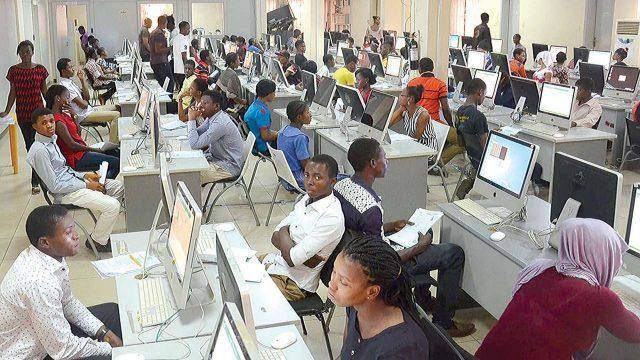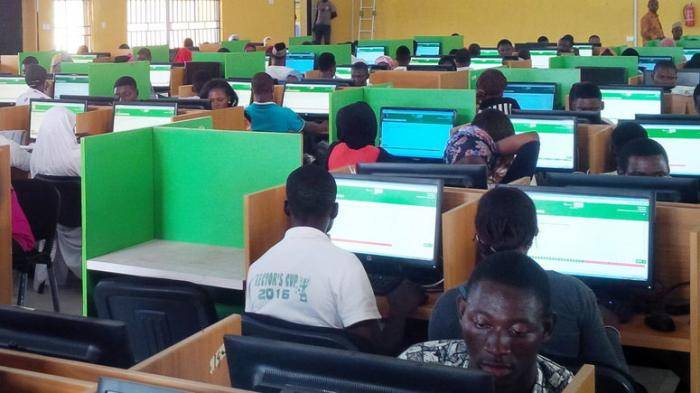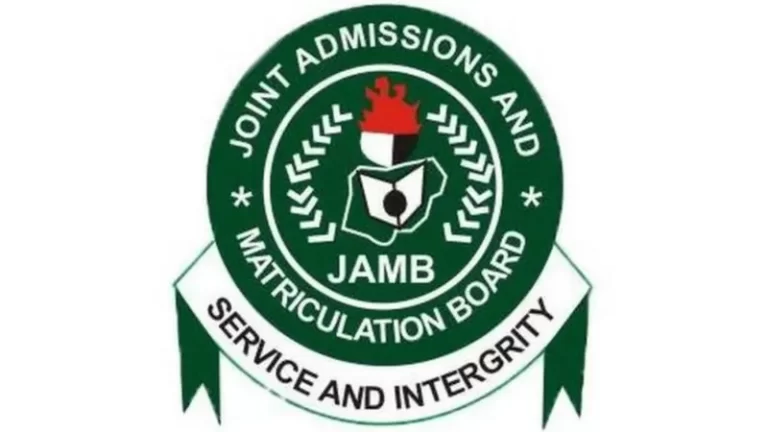Waec

Government-Obj
1-10: DABACABDAD
11-20: BAAABACBBD
21-30: DCDDBACCAA
31-40: DDBCCDDCDB
41-50: AACDDACABD
WE WILL ANSWER ALL THE QUESTIONS STICK TO THE INSTRUCTIONS
SECTION-B (ANSWER THREE (3) ONLY
(6)
(i) Conflict Resolution Skills: Peace education equips individuals with the skills to manage and resolve conflicts peacefully. This is particularly important in Nigeria, where political crises have often escalated into violent confrontations. By teaching negotiation, mediation, and dialogue techniques, peace education helps prevent conflicts from becoming violent.
(ii) Promotion of Unity and National Cohesion: Nigeria is a diverse country with numerous ethnic groups and religions. Peace education promotes understanding and respect among these different groups, fostering national unity. By emphasizing common values and shared goals, peace education helps to reduce ethnic and religious tensions that can lead to political instability.
(iii) Preventing Radicalization: In a country like Nigeria, where extremist groups such as Boko Haram have caused significant unrest, peace education is crucial. It promotes tolerance and critical thinking, helping to prevent the spread of extremist ideologies. Educating young people about the dangers of radicalization and providing them with alternative narratives can reduce the recruitment potential of extremist groups.
(iv) Improved Governance and Citizen Participation: Educated citizens are more likely to engage in democratic processes and demand accountable governance. Peace education fosters a sense of civic responsibility and encourages participation in political and social life. This active engagement can lead to better governance and political stability as citizens hold their leaders accountable and work towards common goals.
(v) Economic Development: Political crises and conflicts disrupt economic activities, leading to poverty and unemployment. Peace education helps to create a stable environment that is conducive to economic growth. When people are educated about the benefits of peace and stability, they are more likely to support policies and initiatives that promote economic development.
(7)
(i)Economic Exploitation: France exploited the natural resources of her colonies, such as gold, ivory, and oil, for her own benefit, leaving the colonies underdeveloped and impoverished.
(ii)Cultural Destruction: French colonial rule led to the suppression of indigenous cultures, languages, and traditions, as the French imposed their own culture, language, and values on the colonized peoples.
(iii)Political Disempowerment: The French colonial system was authoritarian and centralized, denying the colonized peoples any meaningful political participation or autonomy, and crushing any dissent or resistance.
(iv)Social Disruption: French colonial rule disrupted traditional social structures and institutions, such as the family and community, and imposed foreign values and norms, leading to social dislocation and disintegration.
(v)Psychological Trauma: The experience of colonialism was traumatic for the colonized peoples, leading to feelings of inferiority, shame, and cultural dislocation, which continue to have an impact on the psychological well-being of West Africans today.
(8)
(i)Decentralized Authority versus Federalism: In pre-colonial Nigeria, many societies, such as the Igbo, operated under a decentralized political system where power was distributed among various local leaders or councils rather than a single centralized authority. This can be compared to the federal structure of modern Nigeria, where power is shared between the national government and various states.
(ii)Role of Traditional Leaders versus Modern Political Leaders: Traditional leaders, such as the Oba, Emir, or Igwe, played significant roles in governance, acting as both political and spiritual leaders within their communities. In modern Nigeria, while the political landscape is dominated by elected officials such as the President, Governors, and legislators, traditional leaders still hold considerable influence, particularly at the local level.
(iii)Consultative Decision-Making Processes: In pre-colonial times, decision-making often involved extensive consultation with councils of elders, chiefs, or other advisory bodies, ensuring that different viewpoints were considered. This is akin to modern democratic practices where decisions are made through deliberative processes involving various branches of government, such as the executive, legislative, and judiciary, as well as public consultations and debates.
(iv)Conflict Resolution Mechanisms: Traditional political systems in Nigeria had well-established mechanisms for conflict resolution, such as the use of elders’ councils or customary courts to adjudicate disputes. Modern Nigeria continues to utilize formal judicial systems to resolve conflicts, but there is also recognition of traditional methods in certain contexts, particularly in rural areas.
(i)Legitimacy and Governance: The legitimacy of rulers and governance structures in pre-colonial Nigeria was often derived from lineage, tradition, and spiritual endorsement. Modern political legitimacy, on the other hand, is primarily based on democratic principles, where leaders are elected by the populace through formal electoral processes. Despite this shift, the enduring respect for traditional rulers and their roles in community cohesion suggests that legitimacy in Nigeria continues to be multifaceted, blending both historical and contemporary sources of authority.
(9)
(i)Promoting Trade Liberalization: ECOWAS can work to reduce trade barriers and promote economic integration among member states by implementing policies such as tariff reductions, elimination of non-tariff barriers, and harmonization of customs procedures. This will increase intra-regional trade, economic growth, and development.
(ii)Infrastructure Development: ECOWAS can prioritize the development of regional infrastructure such as roads, bridges, ports, and energy systems. This will enhance connectivity, facilitate the movement of goods and services, and attract investment, thereby promoting economic growth and integration.
(iii)Peace and Security: ECOWAS can strengthen its security mechanisms to prevent and manage conflicts, and maintain peace and stability in the region. This can be achieved through the deployment of peacekeeping forces, mediation, and conflict resolution initiatives, creating a conducive environment for economic development.
(iv)Capacity Building and Technical Assistance: ECOWAS can provide capacity-building programs and technical assistance to member states to enhance their institutional capacities, improve governance, and strengthen their economic management capabilities. This will enable member states to effectively implement ECOWAS policies and programs.
(v)Regional Coordination and Harmonization: ECOWAS can foster regional coordination and harmonization by promoting policy convergence, harmonizing economic policies, and establishing common standards and regulations. This will create a more integrated and cohesive economic community, enhancing the region’s global competitiveness and attractiveness to investment.
(10)
(i) National Security: Foreign policy is crucial for safeguarding Nigeria’s national security. By engaging in diplomatic relations and international cooperation, Nigeria can better address security threats such as terrorism, piracy, and cross-border conflicts. Strong foreign policy helps in building alliances and obtaining support for security initiatives.
(ii) Economic Interests: Nigeria’s foreign policy is instrumental in securing economic benefits, including trade, investment, and development aid. By fostering good relations with other countries and international organizations, Nigeria can attract foreign direct investment (FDI), access new markets for its exports, and gain financial and technical assistance for its development projects.
(iii) Regional Influence: As a major power in West Africa and a key member of the Economic Community of West African States (ECOWAS), Nigeria’s foreign policy aims to enhance its influence and leadership in the region. Active participation in regional affairs helps Nigeria shape policies that promote stability, economic integration, and collective security within West Africa.
(iv) International Reputation and Prestige: A well-crafted foreign policy enhances Nigeria’s international reputation and prestige. By playing an active role in international organizations such as the United Nations, African Union, and the Commonwealth, Nigeria demonstrates its commitment to global issues and reinforces its position as a significant player on the world stage.
(v) Promotion of National Values and Ideals: Nigeria’s foreign policy seeks to promote its national values and ideals, such as democracy, human rights, and anti-colonialism. By advocating for these principles in international forums, Nigeria not only supports global norms but also reinforces its own identity and values in the international community.
SECTION-A (ANSWER TWO (2) ONLY
(1)
(i) Providing Information: The mass media gives people news and information about what is happening in the government. This helps citizens know about new policies, government actions, and important events. When people are well-informed, they can participate better in democracy.
(ii) Educating the Public: The media helps to explain difficult political and economic issues in a simple way that everyone can understand. This education helps people know their rights and duties as citizens, and understand how the government works. This knowledge is important for a healthy democracy.
(iii) Acting as a Watchdog: The media keeps an eye on the government and other powerful people to make sure they do not abuse their power. Investigative journalists can uncover corruption and wrongdoing, which helps to hold leaders accountable and promotes honesty and transparency in governance.
(iv) Providing a Platform for Discussion: The media provides a space for people to discuss and debate various issues. Through talk shows, opinion columns, and social media, different opinions can be shared. This helps to create a culture of dialogue and helps people to understand different perspectives.
(v) Encouraging Political Participation: By covering elections, political campaigns, and other democratic activities, the media encourages people to take part in politics. It gives information about candidates and political parties, helping voters to make informed decisions and participate actively in the political process.
(2)
(i) Advocacy and Policy Influence: Civil society organizations play a critical role in advocating for policy changes and influencing government decisions. They bring attention to issues that may be overlooked by the government, such as human rights, environmental protection, and social justice.
(ii) Monitoring and Accountability: Civil society organizations act as watchdogs by monitoring government actions and holding public officials accountable. They ensure transparency and help combat corruption by exposing malpractices and pushing for reforms.
(iii) Public Awareness and Education: These organizations engage in educating the public about their rights and responsibilities, as well as the workings of government. This empowers citizens to participate more actively in the democratic process and to demand better governance.
(iv) Service Delivery: Many Civil society organizations provide essential services, particularly in areas where the government is unable to reach or is inefficient. They often operate in sectors such as health, education, and emergency relief, thereby supplementing government efforts.
(v) Mobilization and Representation: Civil society organizations mobilize citizens and represent their interests, especially marginalized and vulnerable groups. They provide a platform for diverse voices to be heard in the governance process, promoting inclusive development.
(3)
(i) Political Instability and Weak Institutions: Weak political institutions and unstable governments make it easier for anti-democratic forces to challenge and undermine democratic systems. Inconsistent governance and lack of rule of law contribute to political instability.
(ii) Corruption and Poor Governance: Rampant corruption and poor governance erode public trust in democratic institutions. When leaders are seen as self-serving and unaccountable, citizens and opposing groups may lose faith in the democratic process, leading to upheavals.
(iii) Economic Hardship and Inequality: Persistent economic difficulties, high unemployment, and widespread poverty can lead to public discontent and support for non-democratic alternatives. Inequality exacerbates tensions and fuels frustration with democratic governance.
(iv) Military Interventions: In some ECOWAS states, the military has a history of intervening in politics. These interventions can disrupt democratic processes and set precedents for future undemocratic takeovers, creating a cycle of instability.
(v) Ethnic and Regional Conflicts: Ethnic and regional divisions can undermine national unity and democratic governance. When governments fail to address these conflicts effectively, it can lead to violence and challenges to the democratic order.
(4a)
(i)Protection of Rights and Liberties: The judiciary ensures that the rights and freedoms of individuals are upheld by interpreting and enforcing constitutional laws. This protects citizens from any arbitrary actions by the government.
(ii)Checks and Balances: The judiciary acts as a check on the other branches of government (executive and legislative) by reviewing and potentially invalidating laws and executive actions that are unconstitutional.
(iii)Upholding Rule of Law: By ensuring that laws are fairly and consistently applied, the judiciary reinforces the principle of rule of law, which is fundamental to a democratic society.
(4b)
(i)Legislative Oversight: The legislature can oversee and scrutinize the actions of the executive branch through various means such as investigations, hearings, and requiring executive officials to report on their activities.
(ii)Judicial Review:Courts can review the actions of the executive branch to ensure they comply with the constitution and other legal frameworks.Unconstitutional actions can be invalidated by the judiciary.
(iii)Impeachment: The legislative body has the power to impeach and remove from office executive officials, including the president, if they commit serious offenses or violate the constitution.
(5)
(i) Voting and Electoral Participation: Citizens can hold political office holders accountable by actively participating in elections. Voting for candidates based on their performance and integrity can ensure that only deserving individuals are elected. Additionally, running for office or supporting credible candidates can help improve the quality of leadership.
(ii) Engaging in Public Protests and Demonstrations: Peaceful protests and demonstrations are powerful tools for citizens to express their dissatisfaction with the actions or policies of political office holders. These activities can draw attention to issues and pressure the government to address them.
(iii) Utilizing Social Media and Digital Platforms: Social media platforms provide citizens with a means to voice their opinions, share information, and mobilize support for various causes. By using these tools, citizens can highlight issues, demand accountability, and engage with a broader audience, including international observers.
(iv) Participating in Civil Society Organizations: Joining or supporting CSOs that focus on governance, human rights, and accountability can amplify citizens’ efforts to monitor and challenge political office holders. CSOs often have the expertise, resources, and networks to effectively advocate for transparency and good governance.
(v) Filing Freedom of Information Requests: The Freedom of Information Act allows citizens to request information from public institutions. By filing such requests, citizens can obtain data on government activities, expenditures, and decisions, which can be used to hold political office holders accountable.
RECOMMENDED TOPICS
- JAMB 2025 UTME/DE registration document – step-by-step on how to apply for UTME and DE

- JAMB postpones 2025 UTME Registration to February 3rd

- JAMB Officially Announces 2025 UTME Registration, Exam, Mock Dates, Cost and Important Details

- The official reading novel for Jamb 2025 is Lekki Headmaster

- Subjects for Computer Science in JAMB for Guaranteed Success


